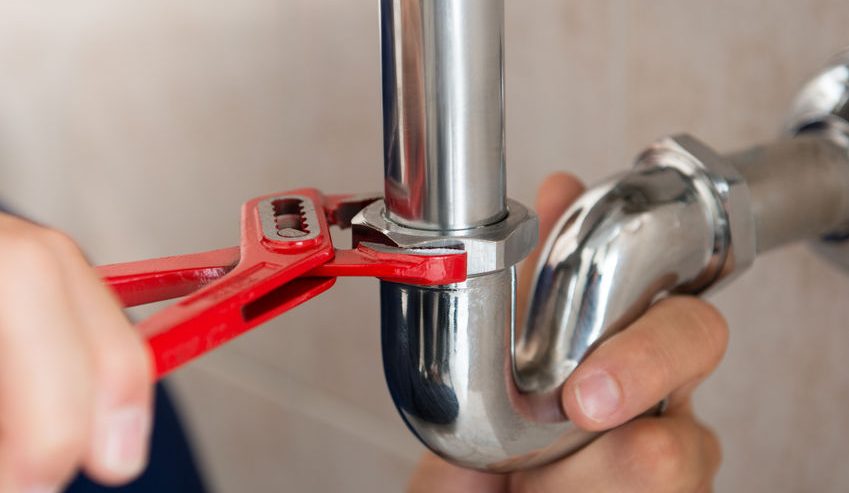Understanding Water Leakage
Water leakage is one of the most common yet overlooked problems in residential and commercial buildings. It occurs when water escapes from pipes, roofing, or plumbing fixtures, often causing hidden damage before it becomes noticeable. Common causes include aging pipes, worn-out seals, roof cracks, and improper installation of plumbing systems. Water leakage can manifest in many ways, from damp walls and ceilings to puddles on floors or unusual sounds of dripping water. Ignoring leaks can lead to structural damage, mold growth, and increased utility bills. Furthermore, persistent water leakage can compromise the safety of your property and even reduce its market value. Identifying the problem early is crucial for effective repair and long-term prevention.
Identifying Water Leakage Early
Detecting water leakage early saves homeowners and property managers significant time and money. Signs often include discoloration on walls or ceilings, peeling paint, a musty smell, and unexplained increases in water bills. In some cases, leaks remain hidden behind walls or under floors, making them difficult to detect without specialized tools. Technologies such as moisture meters, thermal imaging cameras, and leak detection sensors can help identify the exact location of hidden leaks. Regular inspections of plumbing systems, roofs, and drainage pipes can prevent minor leaks from escalating into major damage. Early detection also reduces the risk of mold and mildew, which can negatively impact indoor air quality. Awareness and proactive monitoring are key components of an effective water leakage repair strategy.
DIY Water Leakage Repair Methods
For minor leaks, homeowners often attempt do-it-yourself repairs before calling in professionals. Small pipe leaks can sometimes be fixed using pipe clamps, epoxy putty, or sealant tape. Faucets and showerheads may only require gasket replacements or tightening of loose connections. Roof leaks can be temporarily managed with waterproof patches or tarps until permanent repairs are possible. It is important to follow safety measures when attempting DIY repair, including turning off the water supply and wearing protective gloves. While DIY solutions are helpful for temporary fixes, they may not address underlying causes, especially in older plumbing systems or hidden leaks. Knowing when to escalate the problem to professional services ensures long-term safety and efficiency.
Professional Water Leakage Repair Services
Professional water leakage repair offers comprehensive solutions that go beyond temporary fixes. Certified plumbers and water damage specialists have the expertise to handle complex leaks, including burst pipes, foundation cracks, and hard-to-access areas. Common professional techniques include pipe replacement, epoxy sealing, and advanced leak detection systems. Repair timelines vary depending on the severity and location of the leak, but professionals can provide accurate assessments and permanent solutions. Hiring experts also minimizes property damage, reduces water wastage, and ensures compliance with building codes. Costs may vary, but investing in professional repair often prevents more costly structural issues in the future. Professional guidance ensures both safety and durability in water leakage repair.
Preventive Measures for Water Leakage
Prevention is the most effective way to minimize the risk of water leakage. Regular maintenance of plumbing systems, including inspections of pipes, joints, and fixtures, helps catch potential leaks early. Roof inspections and proper drainage management prevent water accumulation that can lead to leaks. Maintaining water pressure at recommended levels reduces stress on pipes, decreasing the likelihood of rupture. Using durable materials for plumbing and roofing enhances longevity and reliability. Insulating exposed pipes prevents freezing and subsequent bursting during cold seasons. Homeowners should also check appliances such as water heaters, washing machines, and dishwashers for leaks periodically. Preventive measures ensure long-term property protection and water conservation.
Water Leakage Repair in Special Cases
Certain properties require specialized approaches to water leakage repair. Older buildings may have corroded pipes or outdated plumbing layouts that demand customized solutions. Historical or heritage properties often require careful repair methods to preserve architectural integrity. Commercial buildings have different requirements than residential properties, including larger plumbing networks and high water usage. Some leaks occur in difficult-to-reach areas, such as under concrete slabs, behind walls, or beneath flooring. Advanced techniques like trenchless pipe repair or structural epoxy injection may be necessary in these cases. Expert assessment ensures that repairs are thorough and compatible with the building’s unique requirements. Addressing complex leaks promptly prevents further damage and ensures long-term stability.
Environmental and Health Implications
Persistent water leakage can have serious environmental and health consequences. Moisture accumulation promotes the growth of mold and mildew, which can exacerbate allergies and respiratory conditions. Leaks may also compromise structural integrity, leading to weakened foundations or ceilings. Water leakage can damage insulation, flooring, and furniture, increasing waste and repair costs. Improperly managed leaks contribute to water wastage, which has broader environmental implications. Eco-friendly repair options, such as water-efficient fixtures and sustainable materials, reduce both costs and ecological impact. Maintaining a dry, well-monitored property supports a safe, healthy, and environmentally conscious living or working space.
Frequently Asked Questions (FAQ)
How do I know if I have a hidden water leak?
- Unexplained increases in your water bill, damp walls, unusual odors, or sounds of dripping water may indicate a hidden leak. Professional detection tools can confirm the exact location.
Can water leakage damage electrical wiring?
- Yes. Water leakage near electrical systems can create a fire hazard and cause electrical malfunctions, making immediate repair essential.
How much does professional water leakage repair cost?
- Costs depend on the severity, location, and repair method. Minor leaks may cost a few hundred dollars, while extensive repairs can run into thousands.
Is water leakage covered by home insurance?
- Many insurance policies cover sudden and accidental leaks but may not cover gradual damage from neglected maintenance. Review your policy carefully.
How often should I inspect my home for potential leaks?
- Performing a thorough inspection at least twice a year, along with regular checks of visible plumbing and roofing, helps prevent major issues.
Takeaway
Water leakage repair is essential for protecting property, maintaining safety, and conserving water. Early detection, DIY fixes for minor issues, and professional repair services all play important roles. Implementing preventive measures and regular inspections reduces the likelihood of recurring leaks. Understanding the environmental and health implications reinforces the importance of timely action. Investing in proper repair and maintenance ensures long-term durability, cost savings, and a safe living or working environment.






